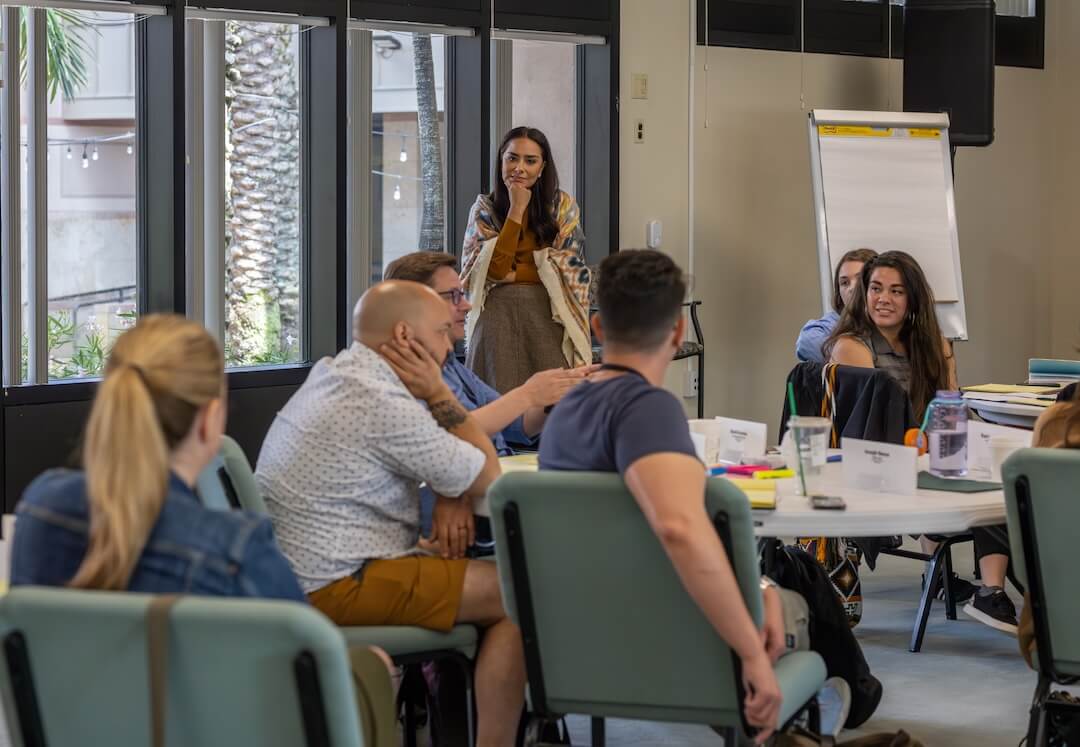For visitors to Memphis, the green and yellow sign at the Lorraine Motel and the white wreath affixed to the second-floor balcony can evoke a flood of emotion. The motel, now part of the National Civil Rights Museum, is devastatingly familiar from news footage about the assassination of Martin Luther King Jr. on April 4, 1968 — an act that seared the city’s name into the collective national consciousness.
But as journalist Wendi C. Thomas explains, that is only part of the story of this city of 635,000 along the Mississippi River — a city that holds a storied place in the history of the blues and rock-and-roll and that is home to major companies and nonprofits like FedEx, International Paper, AutoZone and St. Jude Children’s Research Hospital. Thomas founded her groundbreaking nonprofit digital newsroom, MLK50: Justice Through Journalism, because she is determined to write the next chapters.
“I think MLK50 fills a very specific niche in Memphis, where we’re really centering the people that Dr. King would be centering if he were still alive,” Thomas told us. Her goal, she said, is “to make a measurable, tangible difference in the lives of people in Memphis.”
Memphis doesn’t meet the definition of a news desert, a term popularized by journalism professor Penelope Muse Abernathy, based at Northwestern University in Chicago. The city is served not just by MLK50 but by a daily newspaper, The Commercial Appeal; a large nonprofit digital startup, the Daily Memphian; and a Chalkbeat site, business publications, a public television station, public radio and broadcast television newsrooms. But The Commercial Appeal has endured round after round of downsizing under the ownership of the Gannett chain and now fields a newsroom of just 30 journalists. MLK50 and the Daily Memphian aim to fill the news and information gap.
In our reporting over the past several years, we visited more than a dozen independent newsrooms in nine regions across the country, from New Jersey to California, from Iowa to Texas, and various points in between. We studied digital nonprofits like MLK50 and the Daily Memphian as well as for-profit legacy daily newspapers, tiny community radio stations, and a large public television operation that merged with a statewide website covering politics and public policy. Some serve communities of color in urban areas; some report on rural stretches in the vast middle of the country. A few examples:
- The Colorado Sun, a digital news organization launched in 2018 by 10 Denver Post journalists who struck out on their own in response to massive cuts imposed by the Post’s hedge-fund owner, Alden Global Capital. With about two dozen full-time staff members today, the Sun is among the larger media outlets in the state, and is transitioning to the nonprofit model after several years as a for-profit public benefit corporation.
- The Star Tribune of Minneapolis, a print daily rescued from bankruptcy by a group of civic leaders. Now owned by billionaire Glen Taylor, the paper is profitable and growing, and has won several Pulitzer Prizes in recent years. Minneapolis is also served by MinnPost, a venerable nonprofit, and Sahan Journal, a startup that covers Minnesota’s burgeoning African diaspora.
- The New Haven Independent, begun in 2005 as a standalone nonprofit and now the hub of several related outlets, including a community radio station that gives voice to the city’s Black and Latino populations, a satellite website in the suburbs, and a national website that publishes arts and culture reviews in 14 urban centers across the country. The Independent also partners and shares space with a for-profit Spanish-language newspaper.
We are heartened by the work being done by these news entrepreneurs. At a time when advocates are proposing solutions to the local news crisis such as tax credits, legal action to force Google and Facebook to share advertising revenues, and expanded philanthropic efforts, we’ve learned that there is no substitute for the dedication of grassroots news activists. We hope our work will inspire others to start similar efforts in their own communities.
Ellen Clegg and Dan Kennedy are the authors of “What Works in Community News: Media Startups, News Deserts, and the Future of the Fourth Estate” (Beacon, 2024).









I can understand the feelings expressed about : ”the local news crisis.”
I believe that when people see other people who show a genuine interest in them and allow their feelings etc to be shared via local newspapers, that can hearten and help them to feel less isolated from other people.